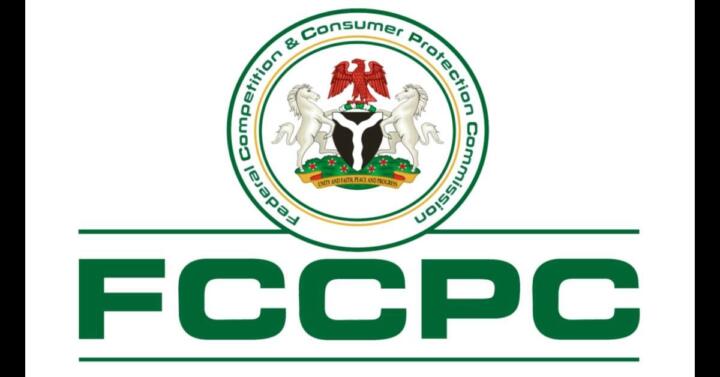The Federal Competition and Consumer Protection Commission (FCCPC) has announced plans to sanction banks in Nigeria for recurring service disruptions that have impacted millions of customers nationwide. In recent months, customers have reported a surge in issues such as failed transactions, delayed payments, and inaccessible banking apps, with these outages often lasting for extended periods without adequate customer support or resolution.
Customer Complaints on the Rise
FCCPC’s decision follows an increasing volume of complaints from bank customers facing challenges such as failed ATM transactions, long downtimes in mobile banking platforms, and delays in processing funds. These disruptions have frustrated many customers, who often rely on digital channels for everyday banking needs. According to the FCCPC, the growing trend of unresolved technical issues has highlighted a pattern of service negligence that ultimately hurts consumers and reflects poorly on the financial sector.
FCCPC Executive Vice Chairman, Babatunde Irukera, expressed concern over the extent of these service disruptions and the impact on consumer rights. Irukera stated that banks are obligated to ensure seamless service delivery and maintain the trust of their customers, especially in a digital-first banking era. He stressed that financial institutions should uphold their responsibility to deliver dependable, consistent service or face regulatory consequences.

Impact of Service Disruptions on Consumers
The disruptions have not only inconvenienced consumers but also exposed them to financial risks and security vulnerabilities. Many customers have shared experiences of being stranded due to failed ATM withdrawals, delayed payments impacting business transactions, and network issues obstructing critical financial decisions. For small business owners, inconsistent banking services can lead to significant losses, as delays in payments can disrupt cash flow, erode client trust, and impact vendor relationships.
Beyond business transactions, the frustrations also impact personal transactions, with issues like delayed salary payments, disrupted utility bill payments, and failed transfers causing widespread dissatisfaction. The FCCPC has cited these widespread and avoidable inconveniences as grounds for closer scrutiny of banking services, reiterating that consumers have a right to efficient, reliable access to their finances.
**FCCPC’s Planned Sanctions and Compliance Requirements**
The FCCPC’s approach to addressing these service disruptions involves stringent monitoring of banking services and imposing penalties on banks that repeatedly fail to meet service standards. The commission is working on a framework to hold banks accountable, with sanctions ranging from monetary fines to limitations on certain banking activities until service standards improve.
The commission has also made it clear that banks will be required to set up robust, responsive customer service systems to address consumer issues swiftly. FCCPC officials stressed that any bank found failing to adequately compensate customers or resolve issues promptly will face heightened scrutiny and possible operational restrictions.
Additionally, the FCCPC plans to work closely with the Central Bank of Nigeria (CBN) to strengthen the regulatory guidelines banks must follow in delivering digital banking services. The joint effort aims to ensure that service interruptions are minimized and banks adhere to service level agreements (SLAs) that prioritize uptime, speed, and reliability.
**Banking Sector’s Response and Potential Reforms**
In response to FCCPC’s announcement, representatives from the banking industry have pointed to the technical challenges of maintaining 24/7 service, particularly with Nigeria’s growing reliance on digital banking platforms. However, they acknowledge that technical investments and strategic upgrades are necessary to keep pace with customer expectations. Some banks have already initiated plans to enhance infrastructure, improve customer support, and upgrade cybersecurity measures, all aimed at providing more stable services.
Experts believe that this shift towards accountability may prompt banks to invest more in IT systems, including cloud-based solutions and enhanced cybersecurity to prevent disruptions and protect against data breaches. Banks will likely focus on system redundancy and disaster recovery solutions to address these issues, along with enhanced transparency regarding service downtimes and faster incident responses.
**Moving Towards a Consumer-Centric Banking Experience**
FCCPC’s latest move represents a broader push in Nigeria to prioritize consumer protection across industries. The commission’s strategy focuses not only on punitive measures but also on fostering a consumer-centric culture within financial institutions, where customer satisfaction and service reliability take precedence. FCCPC aims to make Nigerian consumers more aware of their rights to quality service, while pushing banks to adopt preventive, customer-first approaches to service management.
The commission has encouraged consumers to continue reporting incidents of service failure and unresponsiveness, assuring the public that such complaints will play a vital role in shaping regulatory actions. By creating channels for consumer feedback, the FCCPC seeks to empower individuals to hold banks accountable and demand the service quality they deserve.
The Path Forward for the Nigerian Banking Sector
The FCCPC’s intervention underscores a pivotal moment for the Nigerian banking industry, which has rapidly embraced digital transformation but must now confront the challenges that come with it. For banks, the push for higher standards is an opportunity to build customer trust and strengthen the reputation of digital banking in Nigeria. Implementing FCCPC-mandated improvements will likely benefit banks in the long term by enhancing consumer satisfaction, building loyalty, and reducing customer attrition.
With FCCPC’s oversight, the sector is expected to undergo reforms that will make banking services more reliable and consumer-friendly, while reinforcing the critical role of financial institutions in supporting Nigeria’s economy.
Support InfoStride News' Credible Journalism: Only credible journalism can guarantee a fair, accountable and transparent society, including democracy and government. It involves a lot of efforts and money. We need your support. Click here to Donate
